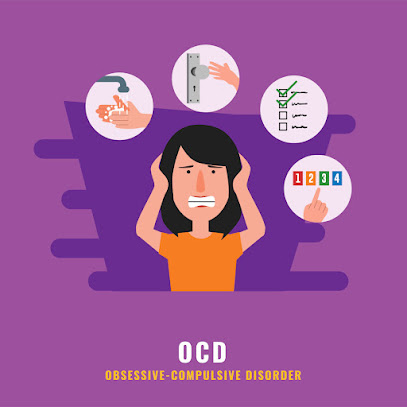Overcoming OCD: A Journey to a Healthy Life
Obsessive-Compulsive Disorder (OCD) can be a debilitating condition, causing persistent, unwanted thoughts (obsessions) and repetitive behaviors or mental acts (compulsions). Living with OCD can make everyday tasks challenging, but with the right approach and support, it is possible to overcome this condition and live a healthy, fulfilling life. In this blog post, we will explore effective strategies to manage and overcome OCD, enabling individuals to regain control and embrace a life of wellness.
1. Seek Professional Help
The first step in overcoming OCD is seeking professional help from a mental health expert, such as a psychologist or psychiatrist. These professionals can provide a proper diagnosis, therapy, and, if necessary, medication to manage symptoms. Cognitive-behavioral therapy (CBT) has been proven to be highly effective in treating OCD. A trained therapist can guide individuals through exposure and response prevention (ERP) therapy, a specific type of CBT tailored for OCD, helping them confront their fears and reduce compulsive behaviors.
2. Educate Yourself about OCD
Understanding OCD is crucial in overcoming it. Knowledge about the condition can help individuals recognize their symptoms, triggers, and thought patterns. Numerous books, websites, and support groups provide valuable information and real-life experiences from people who have successfully managed their OCD. Education empowers individuals to challenge their irrational beliefs and develop effective coping mechanisms.
3. Practice Mindfulness and Relaxation Techniques
Mindfulness and relaxation techniques, such as deep breathing, meditation, and yoga, can help individuals manage anxiety and stress associated with OCD. These practices promote self-awareness and provide a sense of calm, making it easier to cope with obsessive thoughts and reduce compulsive behaviors. Regular exercise also plays a significant role in reducing anxiety and improving overall mental well-being.
4. Build a Support System
Having a strong support system is essential in the journey to overcome OCD. Friends, family, and support groups can provide encouragement, understanding, and a non-judgmental space to share experiences. Talking openly about OCD can help individuals feel less isolated and more motivated to face their challenges.
5. Challenge and Reframe Negative Thoughts
OCD often feeds on negative thoughts and irrational fears. Learning to challenge these thoughts and reframe them in a positive light is a crucial aspect of overcoming the disorder. Cognitive restructuring techniques, often used in CBT, help individuals identify distorted thinking patterns and replace them with realistic, balanced thoughts. By changing their perspective, individuals can reduce anxiety and compulsive behaviors.
6. Practice Exposure and Response Prevention (ERP) Exercises
ERP is a cornerstone of OCD therapy. It involves exposing oneself to situations that trigger obsessions and preventing the corresponding compulsive response. Under the guidance of a therapist, individuals gradually face their fears, learning to tolerate the anxiety without resorting to compulsions. Over time, this process weakens the connection between obsessions and compulsions, empowering individuals to resist the urge to perform rituals.
Overcoming OCD is undoubtedly a challenging journey, but with determination, support, and the right strategies, it is entirely possible. Seeking professional help, educating oneself, practicing mindfulness, building a strong support system, challenging negative thoughts, and engaging in ERP exercises are powerful tools in managing and eventually overcoming OCD. By incorporating these techniques into their lives, individuals can reclaim control, live a healthy life, and pursue their dreams without the constraints of obsessive-compulsive disorder. Remember, seeking help is a sign of strength, and with the right support, everyone can overcome OCD and lead a fulfilling, productive life.

Comments
Post a Comment